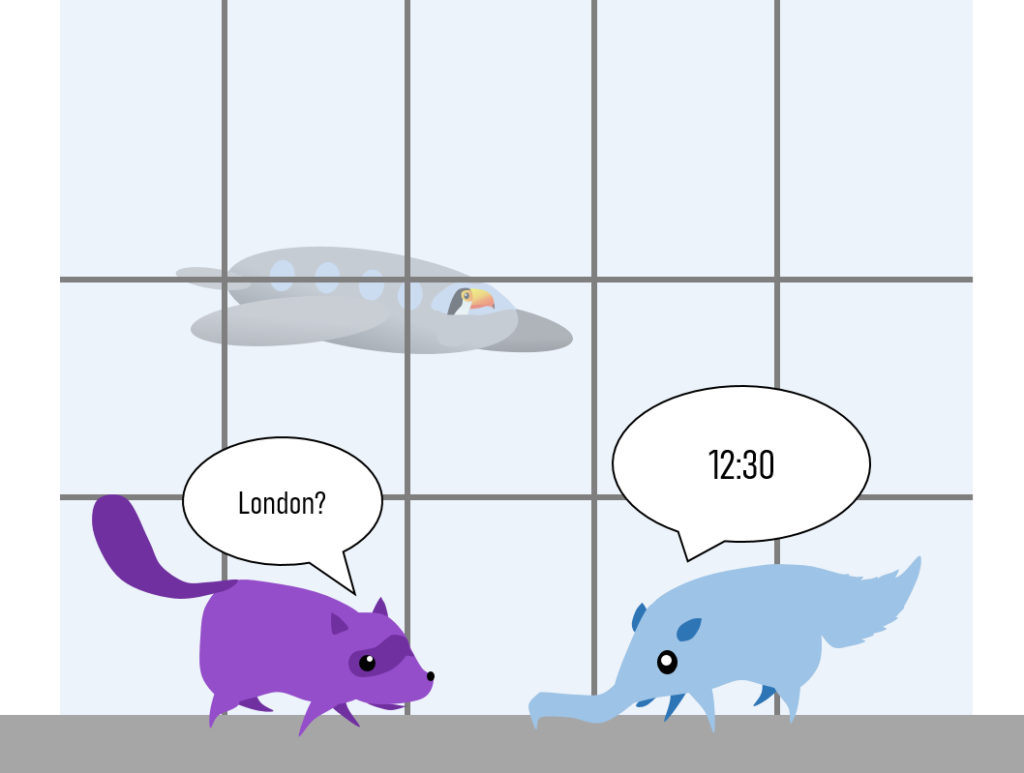5 tips for travel vocabulary
- Answers, not questions
Many language apps provide you with a chance to hear simulated dialogues that you might have in the target language. Many of those dialogues include conversations with locals when travelling, however usually as a language learner you will find yourself in the shoes of the tourist focusing on structuring questions and asking for directions rather than looking into the answers that are usually automatically provided by the app. While that is great and absolutely necessary to be able to ask questions and make sure you are on the right track, not focusing on the answers is a vital mistake. What will happen when you ask for directions but you cannot understand what the other person is telling you? Or if you ask something about a local sightseeing site and a person compliments your language skills then proceeds to tell you a story about the place but you have no idea what they are saying because you only learnt how to ask for help? Next time when learning useful question phrases also look into the answers and try to remember different combinations that might come in handy later. Click here to check out some common conversations that you might find yourself in when travelling.

- Employ your tools
Even if you spent a significant amount of time learning different questions and answers, you might still find yourself in a situation where the words being said to you sound like gibberish. What to do then? For a language learner not being able to successfully employ their skills might be very painful but it does not have to be. It is important to remember that language learning is a life-long process and you can always improve so there is no need to beat yourself up for little things. Instead take out your smartphone and open a translation app for a quick and easy way to get away from an awkward situation, while it might seem like a step back, you will find this an efficient way to clear out any misunderstandings. Besides, that is what the technology was created for and why not take advantage of it?
- Use gestures
Verbal language is definitely not the only way to communicate your questions or needs. In fact, even if you are quite successful in employing your language skills verbally, body language and gestures may add to the whole experience and help you be more clear about what exactly it is that you need. Do not forget, language does not stop at words, educate yourself of gesture vocabulary. Before travelling somewhere look up what gestures may mean different things in a place that you are travelling to and learn basic movement and direction gestures that can help you determine what way the locals are sending you. Finally, carry a map. Seeing a route visually may be a great form of aid when lost, even if there is a language barrier.

- Be appropriate
Before going somewhere, make sure you are knowledgeable in what is considered appropriate and inappropriate conversations in your destination. Starting conversations with strangers may be a completely normal occurrence in the US but a scary experience for Scandinavians (who might be willing to help but much more surprised by your approach). Make sure you are also not talking to someone who might be scared of you or obligated by their culture not to answer, avoid interactions with children unless otherwise indicated by a parent and do not push further communication on a person who does not appear to be willing to help. On top of that, make sure the language that you are using in each situation is adjusted to the customs of the place you are visiting, perhaps choose an informal register and a more laid back vocabulary for the Iberian Peninsula but try to be as respectful and formal as your language skills allow you in East Asian countries such as Japan where this kind of behaviour is customary.
- Learn conversation starters
In some cases a simple ‘excuse me’ might get you the attention of a helpful stranger who will immediately provide you with the needed information. However, in some cultures you will find yourself amidst an interaction otherwise considered small talk. It is not necessarily common in every culture, but if you know that it is quite common in a place where you are headed, prepare yourself with some of the most likely scenarios and conversation starters for a smooth and successful interaction. Click here to read our article on small talk.

Recommended: 5 tips for mastering small talk
